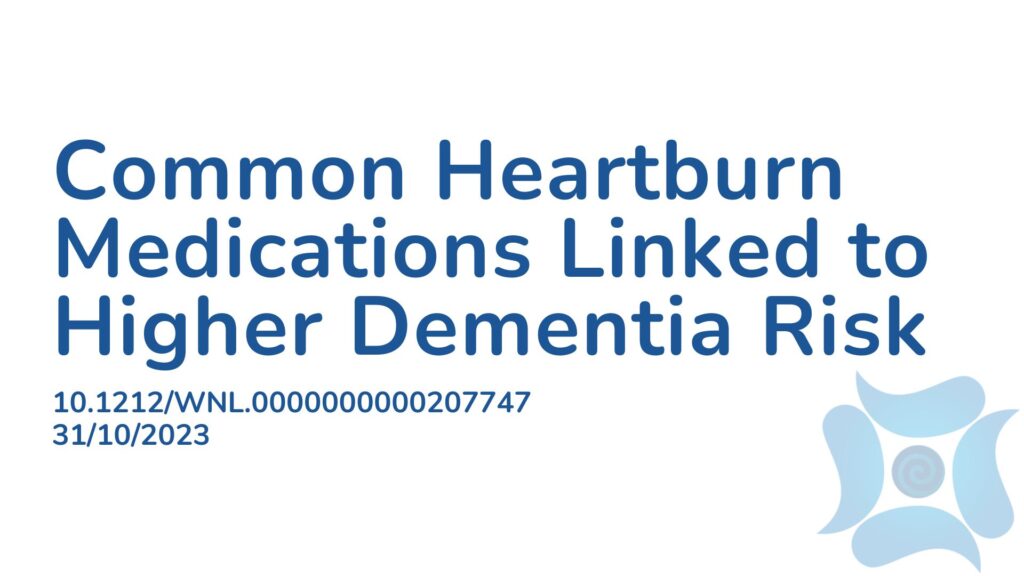Summary:
While intended to alleviate symptoms of heartburn, common acid reflux medications such as proton pump inhibitors (PPIs) may pose significant threats to cognitive health. This study looked at the link between PPIs and risk of dementia, particularly in people who use PPIs long term. The study involved 5,712 individuals aged over 45 without any dementia symptoms. Of the 5,712 participants, 1,490 were PPI users. The participants were split into groups based on their usage. After adjusting for age, gender, race, and medical history, the results showed that use exceeding 4.4 years was associated with a 33% higher risk of dementia, compared with people who do not use PPIs. No significant risk was observed with short-term, intermittent usage of PPIs. This discovery is concerning given that over 15 million Americans are prescribed PPIs such as esomeprazole (Nexium), omeprazole (Prilosec), and lansoprazole (Prevacid), to manage gastro-intestinal issues. These drugs are also self-administered now that there is growing availability to buy them over-the-counter, which poses an even further risk to cognitive health.
Abstract:
Background and Objectives: Studies on the association between proton pump inhibitor (PPI) use and dementia report mixed results and do not examine the impact of cumulative PPI use. We evaluated the associations between current and cumulative PPI use and risk of incident dementia in the Atherosclerosis Risk in Communities (ARIC) Study.
Methods: These analyses used participants from a community-based cohort (ARIC) from the time of enrollment (1987–1989) through 2017. PPI use was assessed through visual medication inventory at clinic visits 1 (1987–1989) to 5 (2011–2013) and reported annually in study phone calls (2006–2011). This study uses ARIC visit 5 as baseline because this was the first visit in which PPI use was common. PPI use was examined 2 ways: current use at visit 5 and duration of use before visit 5 (from visit 1 to 2011, exposure categories: 0 day, 1 day–2.8 years, 2.8–4.4 years, >4.4 years). The outcome was incident dementia after visit 5. Cox proportional hazard models were used, adjusted for demographics, comorbid conditions, and other medication use.
Results: A total of 5,712 dementia-free participants at visit 5 (mean age 75.4 ± 5.1 years; 22% Black race; 58% female) were included in our analysis. The median follow-up was 5.5 years. The minimum cumulative PPI use was 112 days, and the maximum use was 20.3 years. There were 585 cases of incident dementia identified during follow-up. Participants using PPIs at visit 5 were not at a significantly higher risk of developing dementia during subsequent follow-up than those not using PPIs (hazard ratio (HR): 1.1 [95% confidence interval (CI) 0.9–1.3]). Those who used PPIs for >4.4 cumulative years before visit 5 were at 33% higher risk of developing dementia during follow-up (HR: 1.3 [95% CI 1.0–1.8]) than those reporting no use. Associations were not significant for lesser durations of PPI use.
Discussion: Future studies are needed to understand possible pathways between cumulative PPI use and the development of dementia.
Article Publication Date: 31/10/2023
DOI: 10.1212/WNL.0000000000207747




